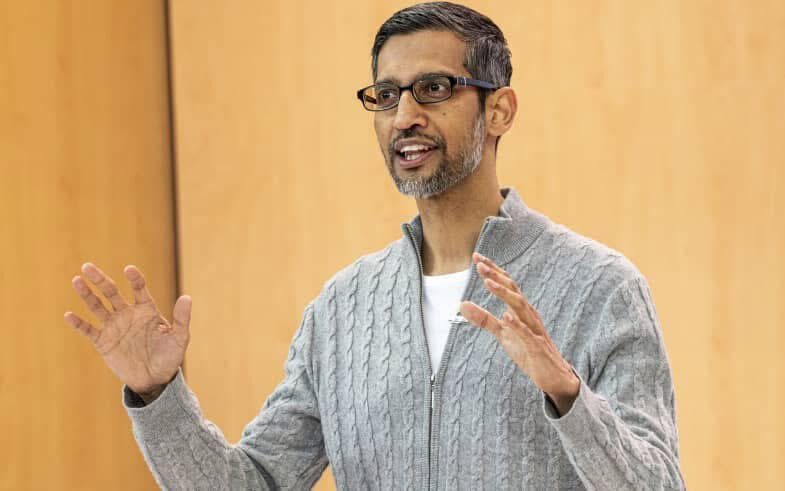OpenAI’s planned acquisition of AI coding startup Windsurf has collapsed in a surprising turn of events that is sending ripples across the artificial intelligence and developer tooling ecosystem. The multi-billion-dollar deal, once considered one of OpenAI’s most ambitious strategic moves, was abruptly shelved this week following internal disputes and legal complexities involving Microsoft and intellectual property licensing.
Windsurf, a fast-growing generative AI startup specializing in developer tools and code generation, had garnered significant attention over the past year. Backed by prominent investors, the company built a loyal user base among software engineers using its AI-powered coding assistant. OpenAI had been in advanced talks to acquire the startup for an estimated $3 billion, according to sources close to the negotiation.
However, as due diligence intensified, key roadblocks emerged. At the center of the dispute was a complicated set of licensing entanglements tied to Microsoft, a major investor in OpenAI and a competitor in the coding assistant space through GitHub Copilot. Windsurf’s proprietary models had reportedly been trained using Microsoft Azure infrastructure and tooling, raising concerns about long-term rights and usage obligations post-acquisition. These legal ambiguities triggered hesitation at the board level within OpenAI and reportedly strained relations with Microsoft, which remains OpenAI’s primary cloud and commercial partner.
The deal finally unraveled when Windsurf’s CEO and co-founder resigned earlier this week. In a move that has startled the tech world, the departing CEO is now confirmed to be joining Google, where he is expected to contribute to its rapidly expanding generative AI research division. While OpenAI has declined to comment on internal deliberations, sources close to the matter have confirmed that the CEO’s departure was a final blow to the acquisition, which had already been on shaky ground.
This failed acquisition is more than a business deal gone wrong—it is a reflection of the rapidly shifting balance of power in the AI industry. With leading firms such as OpenAI, Google, Meta, and Amazon racing to consolidate talent and technology in the generative AI space, strategic acquisitions have become the norm rather than the exception. Yet, as this case illustrates, the intricacies of AI development—ranging from compute infrastructure dependencies to model training data to cloud vendor entanglements—make consolidation uniquely complex.
The collapse of the Windsurf deal is also likely to reignite regulatory scrutiny. With antitrust authorities in the U.S. and Europe already probing AI market concentration, especially around foundational model providers and developer ecosystems, such high-profile deal failures could bring more attention to how vertically integrated players are shaping the next generation of developer platforms. There is also growing concern among open-source advocates that major AI acquisitions may reduce accessibility and transparency in the long term.
From a market perspective, the failed acquisition could open new opportunities for competitors. With Windsurf now independent and its CEO out of the picture, the startup may seek alternative strategic partnerships or funding rounds. Several VCs have already expressed renewed interest, seeing the failed OpenAI deal as a sign of both Windsurf’s value and the broader demand for innovative code-generation tools that go beyond GitHub Copilot’s current capabilities.
The episode also raises questions about OpenAI’s broader acquisition strategy and its relationship with Microsoft. While the partnership between the two companies has largely been viewed as symbiotic, the Windsurf dispute may highlight emerging tensions. Microsoft’s deep integration into Azure-based AI tooling and its competitive presence in the developer space may limit OpenAI’s flexibility in acquiring startups with similar ambitions. This could lead OpenAI to explore more internal R&D efforts rather than acquisition-led growth in the developer tooling segment.
Internally, OpenAI has signaled that it remains focused on strengthening its product suite for developers through updates to its GPT-4.5 and GPT-5 APIs, as well as embedding tools that integrate AI into enterprise software development workflows. However, the failed Windsurf acquisition may cause the company to reassess the pace and nature of its external expansion in this domain.
As the dust settles, Windsurf’s future remains uncertain but promising. The company still retains a strong engineering team, a dedicated user base, and momentum in one of AI’s most commercially viable applications—automated code generation and debugging. Industry watchers now anticipate Windsurf’s next move—whether it will partner with another tech major, pursue fresh investment, or attempt to grow independently in a market that remains highly competitive and innovation-driven.
For OpenAI, this marks a rare public setback. Yet in a fast-moving sector defined by breakthrough models, ethical concerns, and platform wars, even a failed acquisition provides valuable lessons. The next chapter for both companies will be closely followed as the AI ecosystem continues its rapid evolution.
Also Read: Microsoft Outlook Faces Global Outage, Millions Unable to Access Email Services

2 thoughts on “OpenAI’s Windsurf Acquisition Falls Apart as CEO Joins Google: Legal Hurdles and Microsoft Ties Raise Concerns”